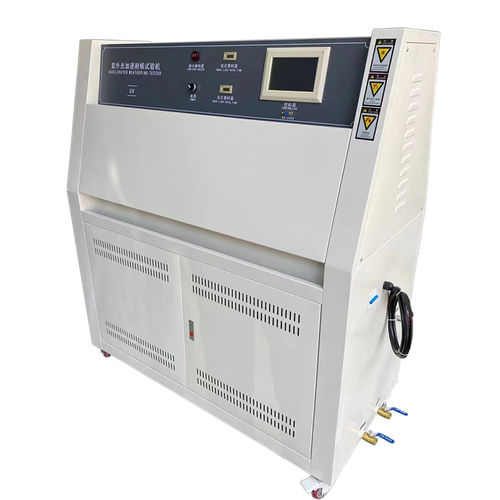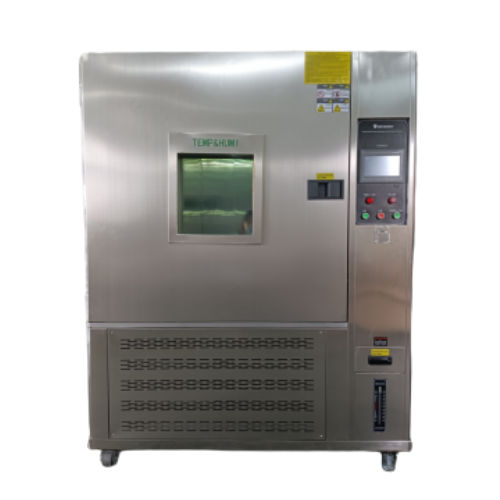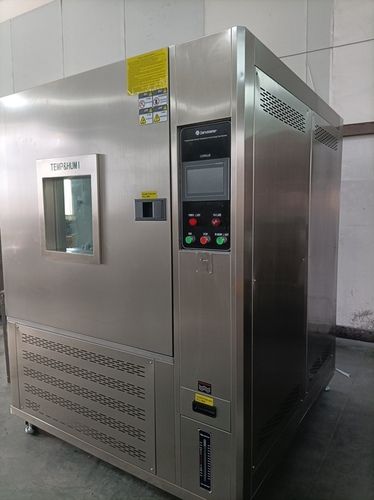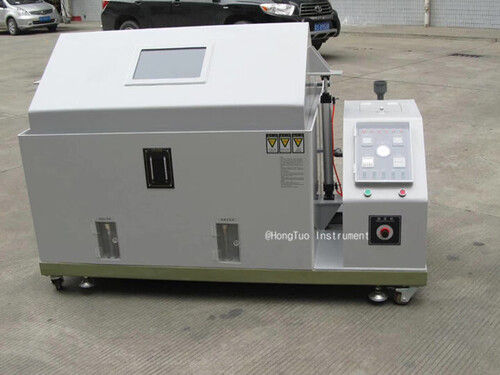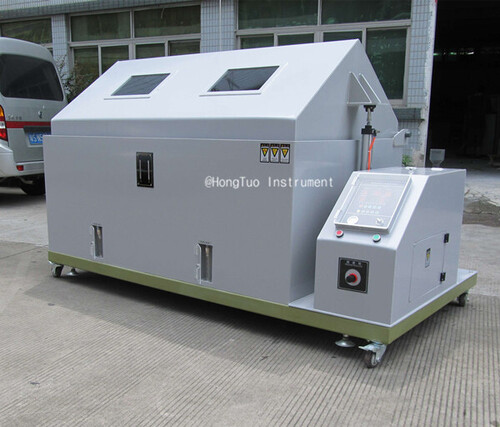
Climate Salt Spray Salt Mist Corrosion Resistance Testing Equipment
1399.00 - 2999.00 USD ($)/Set
Product Details:
- Display Type Digital LED Display
- Specimen Size 150 mm 70 mm max each
- Application Corrosion resistance testing for metal, coatings, and painted surfaces
- Humidity 95% RH or above
- Measuring Range Salt spray concentration: 5% NaCl solution standard
- Features Corrosion resistant chamber, automatic spraying, programmable settings, over-temperature protection
- Resolution Digital - 0.1C
- Click to view more
X
Climate Salt Spray Salt Mist Corrosion Resistance Testing Equipment Price And Quantity
- 1399.00 - 2999.00 USD ($)/Set
- 1 Set
Climate Salt Spray Salt Mist Corrosion Resistance Testing Equipment Product Specifications
- Up to 30 (varies with specimen size)
- Temperature: 0.5C, Humidity: 2%
- 50 Hz
- AC 220V, 50Hz
- Continuous (adjustable)
- 220V
- Standard 1/4 NPT
- Programmable cycle
- 108 liters
- Floor standing
- Salt spray concentration: 5% NaCl solution standard
- 600 mm
- Digital LED Display
- 150 mm 70 mm max each
- Corrosion resistance testing for metal, coatings, and painted surfaces
- 95% RH or above
- Automatic Digital Control
- Industry laboratory testing
- 400 mm
- Corrosion-resistant, ABS/PP chamber
- Approx. 65 kg
- Immediate (real-time monitoring)
- 1.00-2.00 kg/cm2
- Corrosion resistant chamber, automatic spraying, programmable settings, over-temperature protection
- Digital - 0.1C
- Automatic
- 35C 1C (test chamber)
- 450 mm (internal chamber)
- Salt Spray Salt Mist Corrosion Resistance Testing Equipment
- Keypad controller, digital display
Climate Salt Spray Salt Mist Corrosion Resistance Testing Equipment Trade Information
- Shenzhen
- 300 Set Per Month
- 7 Days
- All India
Product Description
Climate Salt Spray Salt Mist Corrosion Resistance Testing Equipment
This product meets the standards of CNS, ASTM, JIS, ISO, etc.The salt spray test is to test the corrosion resistance of the surface of various materials after coating, electroplating, anodizing, anti-rust oil and other anti-corrosion treatment.
Material:
- Pressure bucket adopts seamless welding by 2.0MM SUS304 stainless steel plate.
- Using titanium alloy heating tube for heat generation, long service life, high corrosion resistance.
- The cover is made up of 5MM imported transparent (Germany YLIS) acrylic board. Fine workmanship, beautiful appearance, high transparency.
Specification:
Model: DHL-160
Volume:960L
Interior dimensions(mm)L*W*H:1600*1000*600
Exterior dimensions(mm)L*W*H:2300*1250*1500
Sealing method: The inside and outside box is connected to the sealing groove, using water sealing. avoid salt spray leakage.
Temperature range:
1: Laboratory temperature:35-50 degree(can be set arbitrarily)
2: Pressure bucket temperature:47-63 degree(can be set arbitrarily)
Power: AC220V 50HZ 15A
Advanced Corrosion Testing Capabilities
Equipped with automatic salt spray and mist functions, this device enables comprehensive assessment of corrosion resistance. Suitable for a wide range of specimen types, it allows users to accurately replicate and monitor corrosive conditions in a controlled laboratory setting, improving surface treatment evaluations and product reliability.
User-Friendly Digital Interface
An intuitive keypad controller and digital LED display provide straightforward operation and immediate monitoring. The microprocessor PID controller enhances test precision, allowing users to program and adjust cycles, test speeds, and monitor chamber conditions in real time, ensuring high-quality reproducibility for each test.
Reliable Safety and Construction
Built from corrosion-resistant PVC/FRP and featuring double-wall insulation, the equipment ensures structural longevity and temperature stability. Its suite of safety mechanisms, including over-temperature cutoff and chamber overfill drains, protects both specimens and operators, making it suitable for industrial and laboratory applications.
FAQs of Climate Salt Spray Salt Mist Corrosion Resistance Testing Equipment:
Q: How does the salt spray corrosion testing equipment work?
A: The equipment generates a controlled salt mist by atomizing a 5% sodium chloride solution, continuously or intermittently, onto test specimens inside a sealed chamber. This process simulates harsh environments to evaluate a materials corrosion resistance.Q: What types of materials or products can be tested with this equipment?
A: This machine is suitable for corrosion resistance testing of metals, coated metal surfaces, paint finishes, and other materials exposed to saline environments, making it widely used in industrial quality control and research laboratories.Q: When should I use programmable test cycles versus continuous spraying?
A: Programmable cycles are ideal for simulating real-world corrosion conditions that change over time, while continuous spraying is suitable for accelerated testing. You can select modes based on specific testing standards or product requirements.Q: Where is this equipment typically installed?
A: Designed as a floor-standing, automatic unit, it is commonly installed in industrial laboratories, manufacturing quality control departments, and research facilities that require repeatable and precise corrosion testing.Q: What is the typical process for conducting a test with this machine?
A: Specimens are placed inside the chamber, set within size limits (max 150 mm x 70 mm each). Test parameters are programmed using the controller, and the 5% NaCl solution is sprayed over a selected period. Results are observed via real-time digital display.Q: How does the equipment ensure test result accuracy?
A: The device offers high accuracy with temperature maintained at 0.5C, humidity at 2%, and digital resolution of 0.1C. The microprocessor PID controller and real-time monitoring enable reliable and reproducible outcomes.Q: What are the main benefits of using this salt mist corrosion tester?
A: Benefits include enhanced ability to evaluate product durability, programmable settings for diverse testing protocols, robust safety features, real-time digital feedback, and enduring construction for consistent operation in rigorous environments.Tell us about your requirement

Price:
Quantity
Select Unit
- 50
- 100
- 200
- 250
- 500
- 1000+
Additional detail
Mobile number
Email



